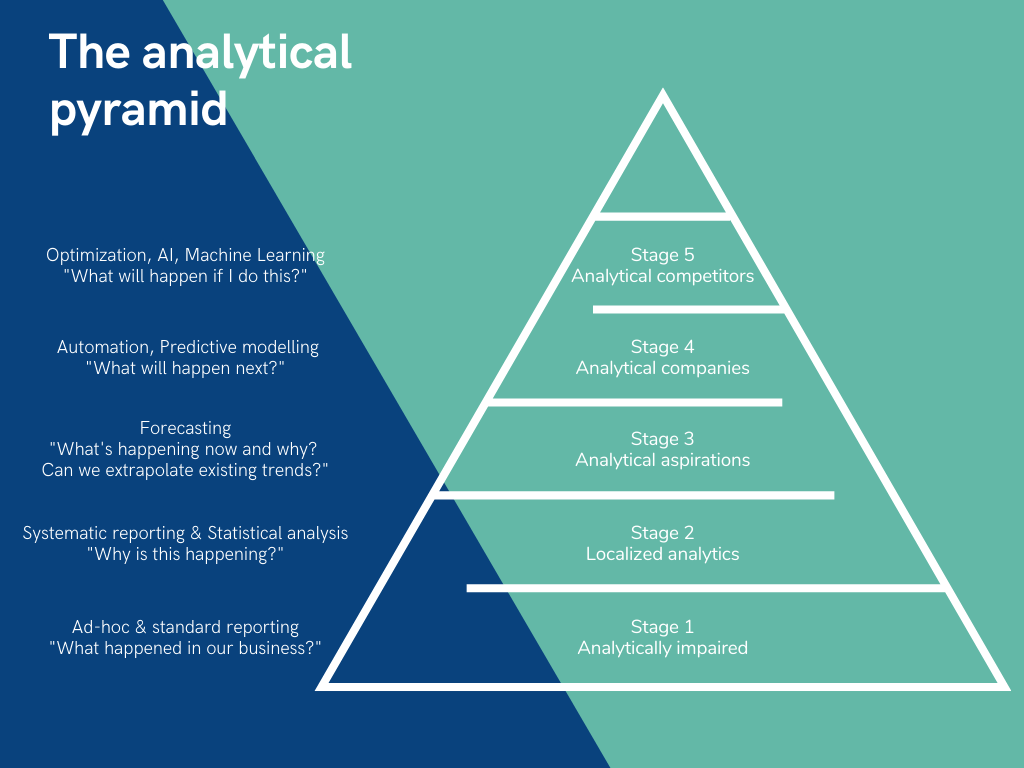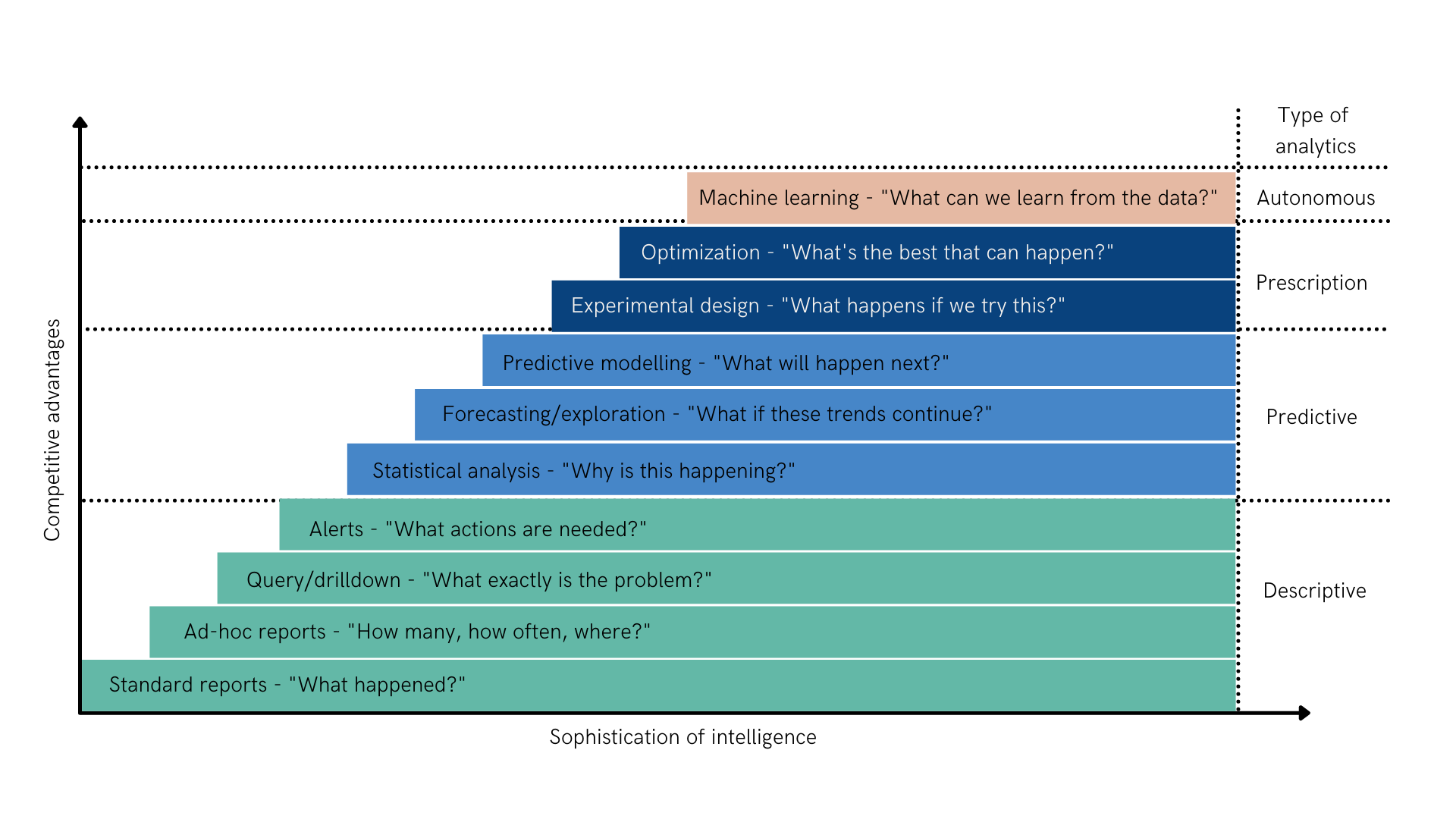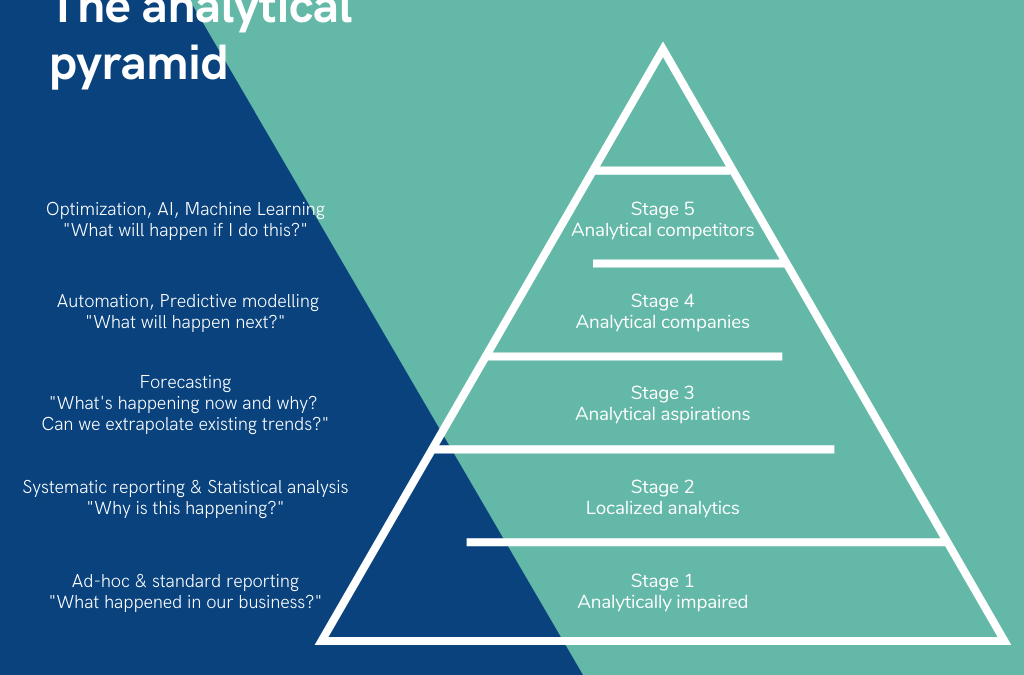There is hardly any organisation that doesn’t see their data as an important resource in today’s world, arguing for why it’s important has become equivalent to arguing for why air is good for you. More or less all of our interactions as users of any service or digital product are logged, regardless if we are talking about interactions with a customer care agent, a physical product, an online shop (or in a physical shop for that matter) or our favourite online services. In the face of this avalanche of data, companies are scrambling to turn it into actionable insights so that they can serve their clients in a better way and drive their business in a better way.

The challenge has become ”how” rather than ”why”, how do you go from zero to insights, predictive analytics or even AI optimisation?
Thomas Davenport and Jeanne G. Harris wrote a great book in 2006 and updated in 2017, ”Competing on Analytics”. The ”how” from an organisational perspective is well described, and even though there is no ”best practice” for a problem of this magnitude, a lot of good practises are explained there. Both from a leadership point of view and from the talents that an organisation needs to have in order to be able to churn data into insights.
I would argue that even though technology has progressed you still need to mature through what they call the five stages of analytical competition visualised by their famous pyramid seen abovea and detailed below.

Here is the thing. You can’t just jump to the top of the pyramid, but setting the ambition to reach it is good. For you to be able to build ML pipelines, AI and other cool hip things you need to first be able to understand the trends in your business, for you to be able to see trends you need to be able to have structured and well defined data models (if you can’t define what a customer is, how can you measure how many you have?) and finally for you to be able to have structured and integrated data you first need to be able to have your data accessible in an easier way so you can start to make sense of it and at least report basic things.
Building your own it-infrastructure to accommodate all of this in a scalable way is expensive and requires several people of different expertise to help you. Architects, Data Engineers, BI specialists and Data Scientists are all critical talents of building analytical platforms that deliver value, which is also why big data platforms or data warehouses have been the privilege of large companies and enterprises with a lot of financial muscle, until now.
Eiko has been built with all of this in mind and even the business model is designed so that it’s easy to get started with your own analytical platform without needing to hire staff or owning expensive infrastructure. We have designed it based on four personas to capture the stage you are in the pyramid but at the same time give you the tools to allow for agile experiments of higher levels.


Recent Comments